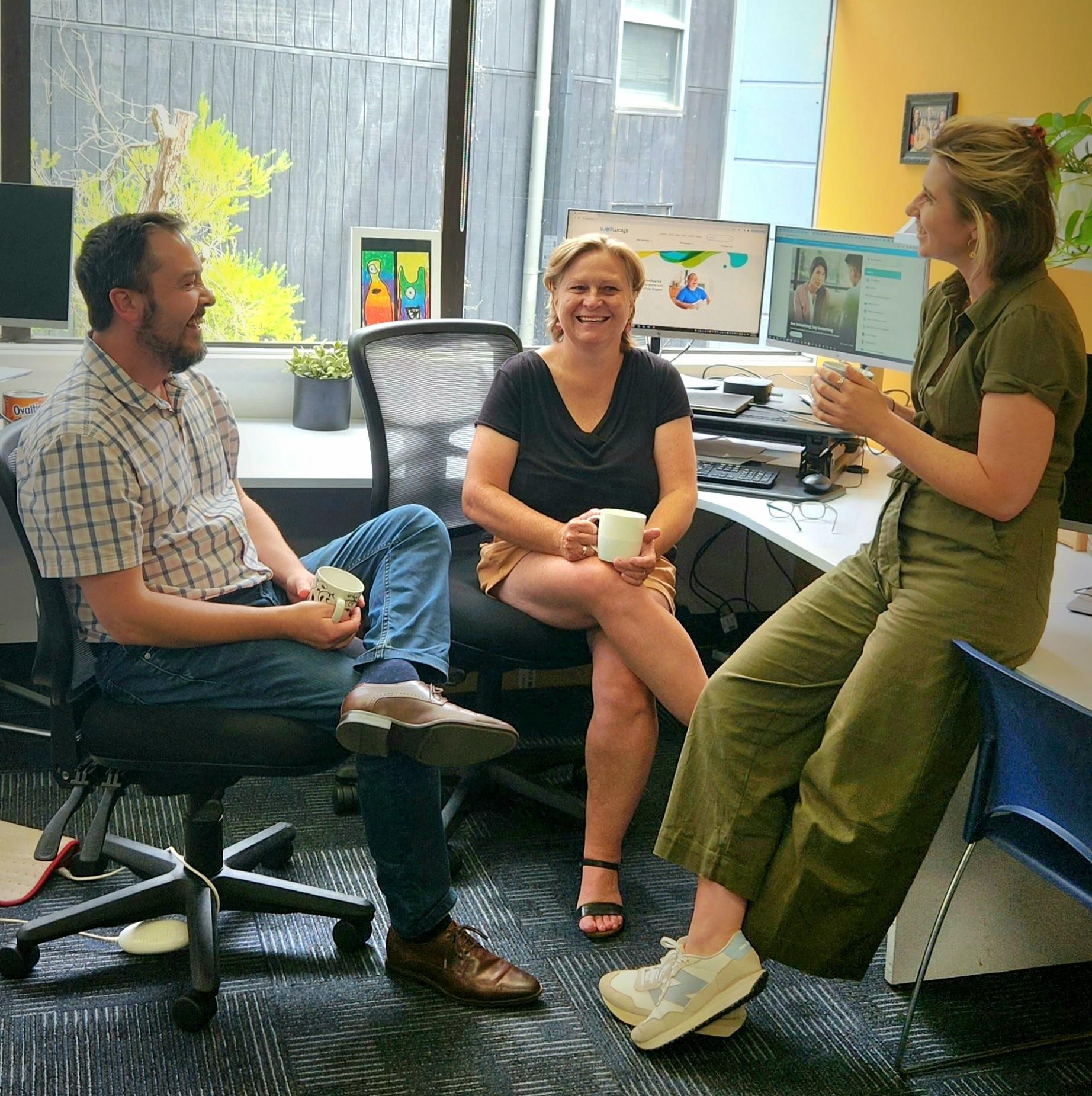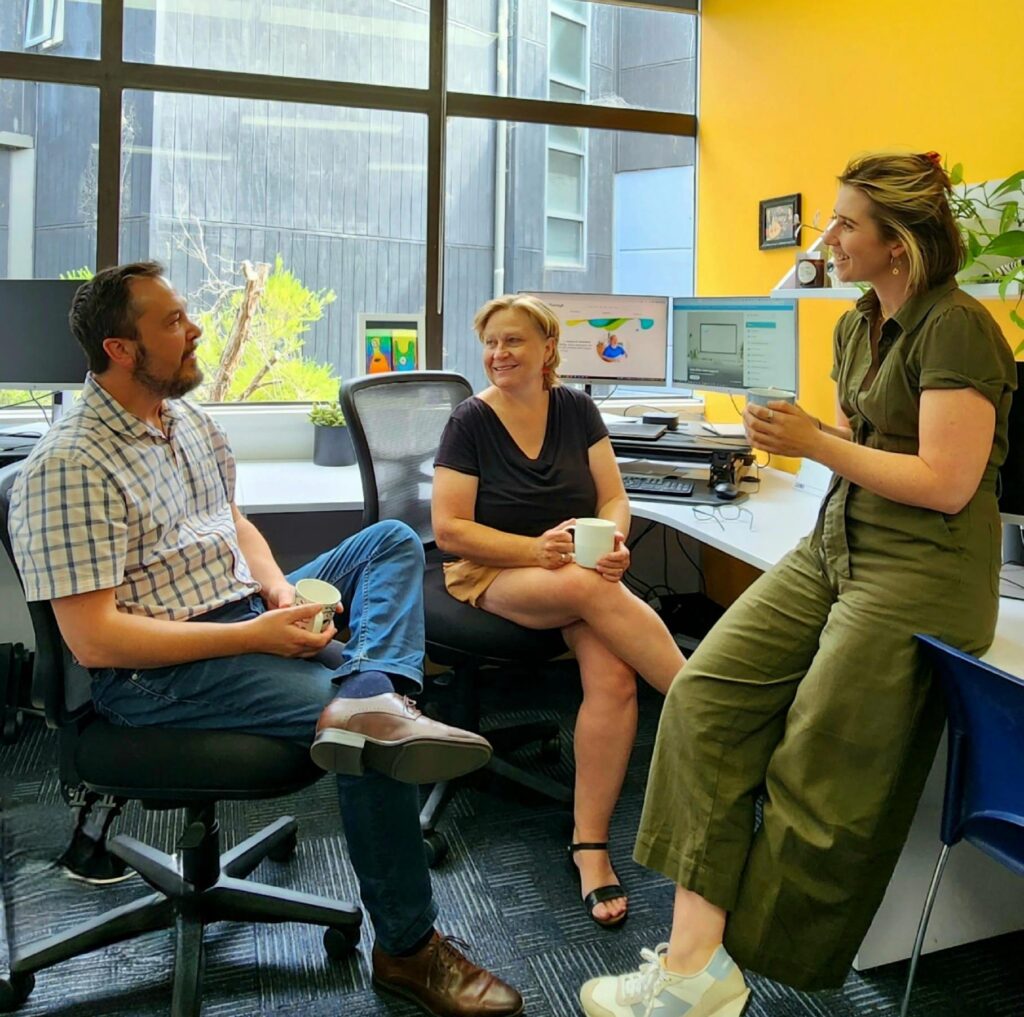What would I do without work?
It’s my vocation, an intrinsic part of my identity as a successful woman. I’m immensely proud of what I do. So, when people ask me, ‘What do you do for work?’ — as they always do — I am eager to tell them.
My mother also worked in a job she loved when she became a carer. There were occasions when she needed to take time off work to provide emotional support, attend appointments, and handle emergencies. The more she hid the reasons for her absences, fearing her coworkers would realise the extent of her responsibilities, the more stressful it became. Mum never wanted others to think she required special treatment. She was a diligent, proud worker, which led her to feel like she was letting the team down when she took time off. However, in reality, the unpaid and unrecognised work she was doing to hold everything together was truly remarkable.
The story of my working life with caring responsibilities is in stark contrast. Not only do I receive recognition for both the paid and unpaid work I do, but I am also recognised and celebrated as a whole person with a fulfilling life outside of work.
When all my needs are recognised and supported, my workplace benefits greatly from what I bring. While I haven’t utilised all available leave entitlements and flexible work arrangements, simply knowing they exist provides me with peace of mind, acting as a safety net. I know I am valued and supported to be my best both at home and at work.
The Carer-Inclusive Workplace initiative emerged because of recommendations from the Australian Government’s Jobs and Skills Summit with the aim to promote equal opportunities and reduce barriers to employment for people with caring responsibilities.
Recognition goes a long way
Family and friends in unpaid caring roles save the government $78 billion a year. However, carers’ health, wellbeing, and financial security are often jeopardised due to a lack of support in their caring role. Carers want to work for the health and financial benefits, yet they require workplaces to acknowledge, understand, and provide flexibility to support them in their roles. People facing high levels of discrimination are less likely to ask for what they need at work; and caring roles are diverse and sometimes unpredictable.
Recognition by employers and coworkers is the first step toward support, benefiting both employers and individuals with caring responsibilities.
“Having a flexible workplace and an employer who understands the challenges that many carers navigate on a daily basis can assist carers in accessing and maintaining paid employment“
Carers Australia
A supportive and positive workplace environment leads to more engaged, efficient workers, higher morale, and improved health and wellbeing.

Carer-inclusive workplaces are:
- Open about the intent to support carers
- Well versed on carer rights
- Leading by example and encouraging all staff to model self-care, i.e. taking breaks and holidays
- Open and transparent, i.e. by sharing stories from workers with caring responsibilities, what’s working well, and sharing these across the organisation so teams can learn
- Flexible – supporting the option to work from home and work hours that suit the carer
- Understanding of what the role of carer means for each employee, because it’s different for everyone
- Trusting – they allow time off without needing the detail of why
- Able to offer range of leave entitlements to everyone in the workplace, not just carers
- Employers of choice.
References:
Recognition Matters: Strengthening the Carer Recognition Act and carer representation within Government.
Carers Australia’s 2nd Submission to the House of Representative Inquiry into the recognition of unpaid carers, Aug 2023.
